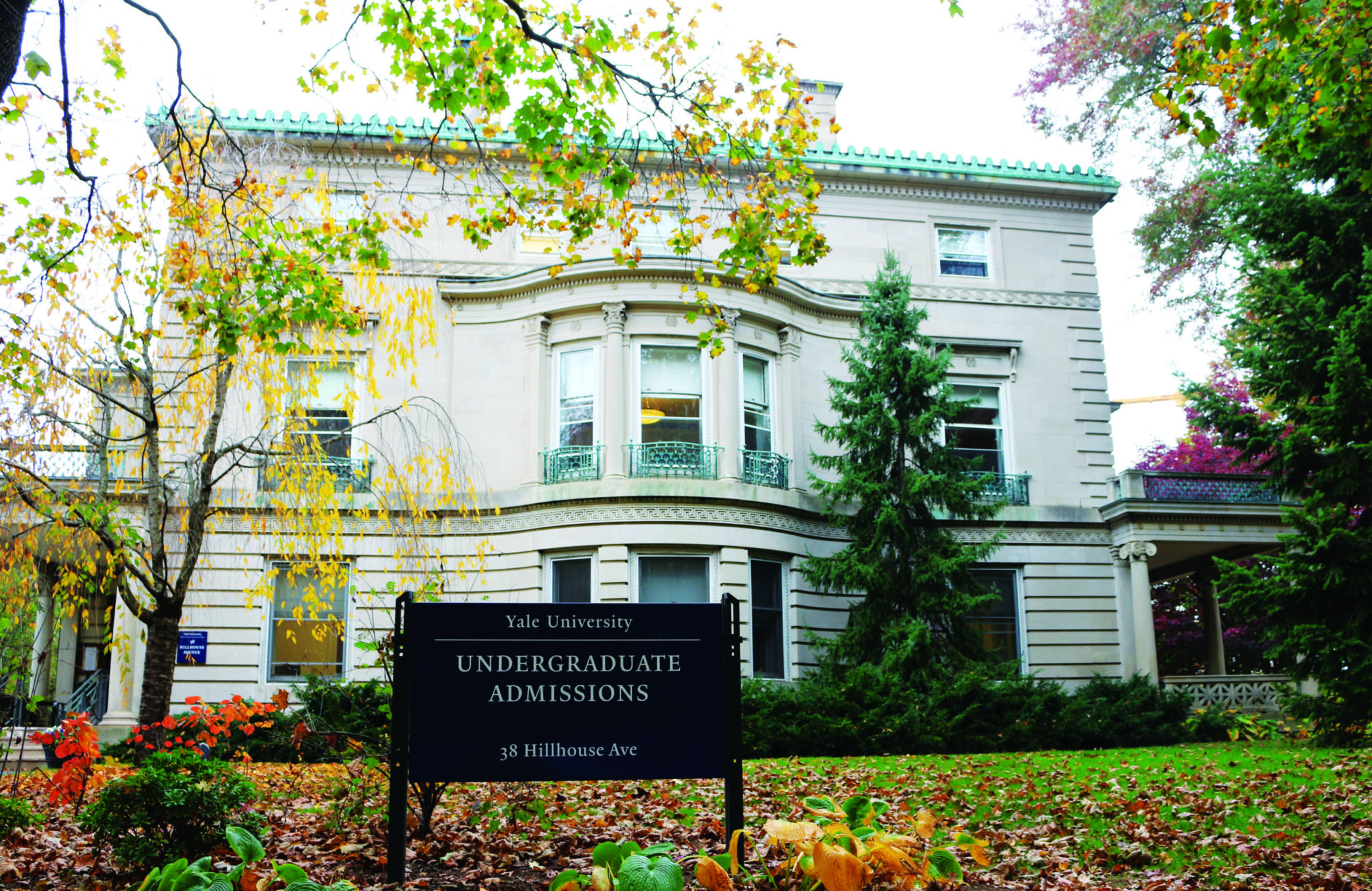Yale, other top universities sued for allegedly colluding to limit financial aid
Five former students from several of the 16 universities argue that the schools violated antitrust law by collaborating to determine prospective applicants’ financial need.

Yale Daily News
Yale and 15 other major universities were sued late Sunday for allegedly violating antitrust laws and unfairly limiting student financial aid.
The lawsuit was filed in Illinois federal court by firms representing five students who previously attended several of the universities. It argues that the schools engaged in price fixing and unfairly limited financial aid by using a shared methodology to determine prospective students’ financial need. Under federal antitrust law — specifically Section 568 of the Improving America’s Schools Act of 1994 — universities can work together on their financial aid formulas only as long as none of them consider applicants’ financial need in their admissions decisions.
The suit argues that a subset of the schools in the group — not including Yale — do take candidates’ ability to pay into account in some circumstances, therefore rendering the entire group ineligible for the antitrust exemption. Namely, the suit alleges that nine out of the 16 schools consider financial need in their admissions process by favoring children of wealthy donors for admission. It also alleges that the subset of schools considers applicants’ finances when admitting them off the waitlist.
“Under a true need-blind admissions system, all students would be admitted without regard to the financial circumstances of the student or student’s family,” the plaintiffs wrote in the complaint. “Far from following this practice, at least nine Defendants for many years have favored wealthy applicants in the admissions process. These nine Defendants have thus made admissions decisions with regard to the financial circumstances of students and their families, thereby disfavoring students who need financial aid.”
In response to the lawsuit, University spokesperson Karen Peart told the News that “Yale’s financial aid policy is 100% compliant with all applicable laws.”
The nine schools who allegedly consider applicants’ financial circumstances in admissions are Columbia University, Dartmouth College, Duke University, Georgetown University, the Massachusetts Institute of Technology, Northwestern University, Notre Dame University, the University of Pennsylvania and Vanderbilt University. Seven other schools — Brown University, the California Institute of Technology, the University of Chicago, Cornell University, Emory University, Rice University and Yale — are included in the lawsuit, although it states the schools themselves “may or may not have” considered applicants’ financial need.
The 16 schools are together called the “568 Presidents Group” and use a “Consensus Approach” to determine a family’s ability to pay for school. In 2003, the group developed the methodology for their Consensus Approach, which they use to calculate an applicant’s ability to pay, according to the suit. The group generally meets a few times each year to talk about calculations. According to the complaint, Yale began employing the Consensus Approach’s methodology in 2003, but appears to have left the 568 Presidents group in 2007 and rejoined in 2018.
Since not all of those in the 568 President group qualify as need-blind, the entire system of methodology represents illegal collusion, the lawsuit says. In their complaint, the plaintiffs allege that the “568 Cartel” has specifically overcharged low- and middle-income families.
“In collectively adopting this methodology, and regularly meeting to implement it jointly, the 568 Cartel has explicitly aimed to reduce or eliminate price competition among its members,” the plaintiffs write. “As a result of this conspiracy, the net price of attendance for financial-aid recipients at Defendants’ schools has been artificially inflated.”
This is the third major lawsuit that has placed Yale’s admissions practices under scrutiny in the last three years. In 2019, the “Varsity Blues” scandal and ensuing lawsuits revealed that a number of athletic officials at elite universities, including one athletic coach at Yale, were taking bribes from wealthy families to facilitate admission. In 2020, the United States Department of Justice under then-president Donald Trump sued Yale, alleging that its affirmative action practices violated national law. That suit was dropped in early 2021 after President Joe Biden took office.
The suit is meant to “end Defendants’ conspiratorial conduct and to prevent future students from suffering the injury the ongoing conspiracy has inflicted,” according to the complaint. It also seeks compensation for U.S. citizens or permanent residents, and “purchasers of tuition, room, or board on their behalf” who have enrolled as undergraduates at one of the 15 universities, paid tuition, room or board not completely covered by aid and enrolled at the university “during the relevant times” defined by the suit.
“In critical respects, elite, private universities like Defendants are gatekeepers to the American Dream,” the plaintiffs state. “Defendants’ misconduct is therefore particularly egregious because it has narrowed a critical pathway to upward mobility that admission to their institutions represents.”
The plaintiffs argue that more than 170,000 former undergraduate students, going back 18 years, are qualified to join the suit as plaintiffs.
The case was filed in the Northern District of Illinois by law firms Roche Freedman, Gilbert Litigators & Counselors, Berger Montague and FeganScott.
This story is breaking and will be updated.
Update, Jan. 10: This story has been updated with University Spokesperson Karen Peart’s comment.







